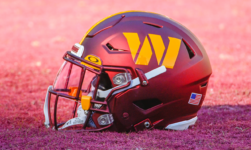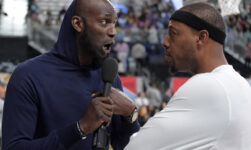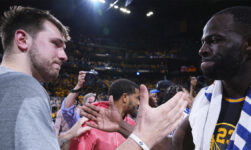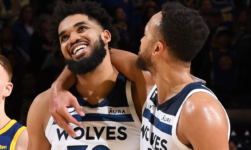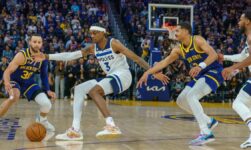The New Orleans Pelicans took care of business this week. After a 1-12 start, they fought their way back into postseason contention, earned a No. 9 seed and knocked off the San Antonio Spurs and Los Angeles Clippers to sneak their way into the playoffs. Considering where they started, it was a tremendous achievement. But things are about to get a whole lot harder. The 64-18 Phoenix Suns await them in the first round.
New Orleans had lost more games by Thanksgiving than Phoenix did by the All-Star break. Winning two games against mediocre opponents is one thing. Taking down the championship favorites will be quite another. Here’s the schedule for Suns-Pelicans as well as a few strategic points to watch out for.
Please check the opt-in box to acknowledge that you would like to subscribe.
Thanks for signing up!
Keep an eye on your inbox.
Sorry!
There was an error processing your subscription.
Series schedule
Game 1: Suns 110, Pelicans 99
Game 2: Pelicans 125, Suns 114
Game 3: Suns 114, Pelicans 111
Game 4: Pelicans 118, Suns 103
Game 5 (at PHO): Tuesday, April 26 | 10 p.m. ET | TV: TNT
Game 6 (at NO): Thursday, April 28 | TBD | TV: TBD
Game 7* (at PHI): Saturday, April 30 | TBD | TV: TNT
*If necessary
Featured Game | Phoenix Suns vs. New Orleans Pelicans
The Suns have one elite perimeter defender in Mikal Bridges. The Pelicans have two elite perimeter scorers in C.J. McCollum and Brandon Ingram. Phoenix therefore has a choice to make: would they rather lock down Ingram or McCollum?
McCollum is probably more important to the New Orleans offense as a whole. He’s functioned as their point guard since the trade deadline, and given Ingram’s superior length, is probably more susceptible to elite defense than his All-Star counterpart. The issue that arises out of having Bridges guard him is that it throws the rest of their lineup out of alignment. Jae Crowder would have to defend Ingram if Bridges doesn’t, but the three remaining New Orleans starters are the 6-foot-7 Herb Jones and two seven-footers in Jonas Valanciunas and Jaxson Hayes. Jones is a bit of a hiding spot, but Chris Paul and Devin Booker aren’t going to defend seven-footers.
That makes Bridges on Ingram the likelier opening matchup, but that probably forces Booker to guard McCollum. He’s grown as a defender over the past several years, but that’s a tall order even for All-Defense candidates. If he’s devoting the bulk of his energy to defending McCollum, that leaves Paul to run the bulk of the offense. He’s obviously more than capable of doing so, but given his injury history, the less he is strained, the better. He only just returned from a hand injury in late March.
Monty Williams won’t stick with one single defense, and New Orleans uses just enough shaky shooters to give him schematic flexibility. If he wants to double Ingram, he can do so. But Bridges is his primary defensive weapon, and how he deploys him is going to dictate what the Pelicans can and can’t do offensively in this series.
2. Do the Pelicans play big or small?
New Orleans is one of the few teams left in the NBA to start two traditional big men in Hayes and Valanciunas. The latter has expanded his range just enough to make it offensively viable. They’re devastating on the boards and they provide the best rim-protection this roster can muster, but they’re exactly the sort of big men Phoenix’s pick-and-roll maestros love to hunt.
Valanciunas in particular is really only suited to conventional pick-and-roll defense given his limited mobility. Conventional pick-and-roll defense is death against the Suns. Even the vaunted Bucks, the NBA’s masters of drop coverage, realized early in the 2021 Finals that they couldn’t simply invite Paul and Booker to take mid-range jumpers. This group isn’t remotely equipped to switch, either, and you can’t blitz and rotate because their passing is so crisp.
The Clippers might have pressed the Pelicans into a response on Friday when they forced them to go small. Larry Nance Jr. is much more versatile defensively, and even if he isn’t elite in any single area, he gives Willie Green room to mix coverages and keep the Suns guessing. He’d also get eaten alive physically by DeAndre Ayton. The Pelicans have very few advantages in this matchup. Giving up their rebounding edge means playing into Phoenix’s hands.
The Suns are 64-18. Teams don’t win that many games by accident. This isn’t supposed to be an easy puzzle to solve. Green is going to make the most of the limited pieces he has if he even plans to try.
3. Can the Pelicans match the Suns in the clutch?
The Suns are a very good team for the first 43 minutes of a game. For the last five minutes, they become maybe the greatest team in NBA history. They’ve outscored opponents by 33.4 points per 100 possessions in the last five minutes of five-point games, more than twice as many as any other team. Chris Paul has now led three different teams to the NBA’s best clutch net rating over the past five seasons. You can’t just beat the Suns. You have to blow them out, because if the game is at all close in the fourth quarter, they’re going to destroy you.
But the Pelicans have played well in fourth quarters since the deadline. They outscored the Clippers by 14 in Friday’s. McCollum and Ingram give them two high-end scoring options, and with Bridges only being able to guard one, they should be able to generate shots late in games, and Herb Jones can at least torture one of Phoenix’s star guards on the other end of the floor. This is the question that any team hoping to beat the Suns has to answer: can you hang with them late? If the answer is yes, you’ve got a shot. If the answer is anything else, well, start booking those flights to Cancun.

